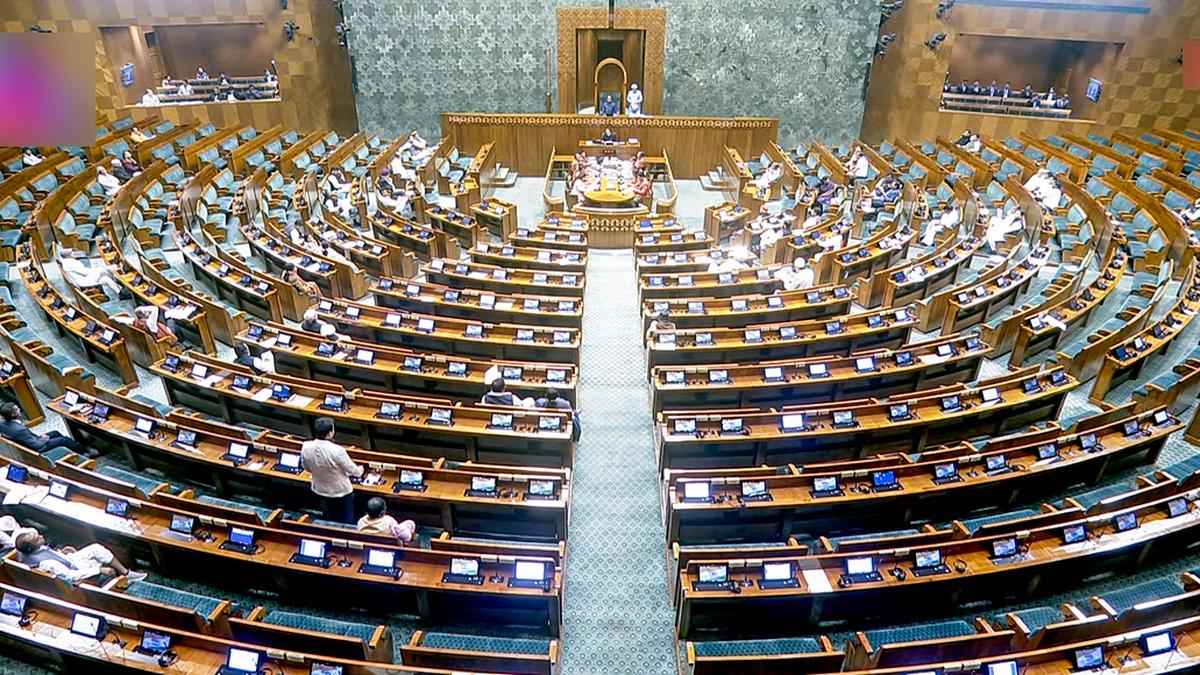 |
|
The Lok Sabha, India's lower house of Parliament, witnessed significant disruption on December 12, 2024, stemming from accusations leveled by BJP MP Nishikant Dubey against the Congress party. Dubey repeatedly linked the Congress to billionaire investor George Soros, prompting strong reactions and protests from Congress members. This led to two adjournments of the House, highlighting the escalating tensions between the ruling BJP and the principal opposition party. The smooth running of the Question Hour earlier in the day was starkly contrasted by the subsequent chaos during Zero Hour, the time allocated for members to raise matters of public importance.
Congress MPs expressed serious concerns regarding the repeated allowance of Dubey to raise the Soros issue during Zero Hour. Mohammed Jawed, a Congress MP, wrote a letter to Lok Sabha Speaker Om Birla, requesting a review of the process. He pointed out that Dubey had been permitted to raise this specific matter for several consecutive days. This raised questions about fairness and the equitable distribution of speaking time within the Parliament. K.C. Venugopal, Congress General Secretary, further criticized the situation, alleging a deliberate attempt by Prime Minister Narendra Modi to disrupt the functioning of the House. He accused Dubey of being tasked with insulting the Congress leadership using lies and violating parliamentary norms. This accusation raises deeper concerns about the use of parliamentary procedures for political maneuvering.
The crux of Dubey's accusations centered around the alleged connection between the Congress party and the Organized Crime and Corruption Reporting Project (OCCRP). He claimed that the OCCRP, which he associated with George Soros and the United States, aimed to destabilize the Indian Parliament. He cited a report by the French organization Mediapart to support his claims, emphasizing the alleged financial backing of the OCCRP by the Soros Foundation. Furthermore, he alluded to Soros's past financial dealings, referring to his 1991 activities involving the Bank of England, as evidence of his intention to destabilize Indian institutions. This narrative paints a picture of a deliberate attempt by external forces to influence Indian politics, a claim that Congress vehemently denies.
Dubey's accusations extended beyond the OCCRP to include Salil Shetty of the Open Society Foundation, who participated in the Bharat Jodo Yatra led by Rahul Gandhi. This suggests a broader attempt to link Congress with organizations perceived as having ties to Soros. The inclusion of these specific details underscores the targeted nature of the accusations and contributes to the intensity of the political conflict. The accusations and counter-accusations highlight a deep partisan divide within the Indian Parliament, with each side framing the other's actions in a highly critical light. The use of parliamentary time for these accusations also raises questions about the effectiveness and decorum of the legislative process.
The Congress party’s response went beyond simply denying the allegations. They also raised concerns about the fairness of the process governing Zero Hour. Manickam Tagore, another Congress MP, wrote a separate letter to the Speaker, complaining about alleged derogatory remarks made by Union Commerce Minister Piyush Goyal against Congress Deputy Leader Gaurav Gogoi. This suggests a broader pattern of what Congress perceives as unfair treatment and an attempt to stifle their voice in Parliament. The incidents underscore not only the political disagreement but also the procedural and ethical concerns surrounding the functioning of the Lok Sabha. The actions taken by Congress MPs reflect an attempt to use parliamentary channels to address their grievances and to highlight what they see as unfair practices.
The incident serves as a significant example of the intense political battles playing out within the Indian Parliament. The allegations and counter-allegations, coupled with the disruption of parliamentary proceedings, reveal the depth of political polarization in the country. The ongoing debate highlights the importance of maintaining order and decorum in legislative bodies and the need for fair and transparent procedures. Furthermore, it raises questions about the influence of external actors in domestic politics and the role of media in shaping public perception. The incident's long-term consequences remain to be seen, but it undeniably underscores the significant political tensions in India.
Analyzing the situation, it's clear that the allegations against Congress are serious, casting a shadow on their reputation and potentially impacting public trust. The Congress party's response, highlighting the procedural irregularities and alleged unfair treatment, underscores the deep-seated distrust and lack of consensus within the Indian political landscape. The accusations involving external entities further complicate the situation, introducing a new dimension to the political conflict. The resulting disruption of the parliamentary session points towards the urgent need for mechanisms to resolve disputes and ensure smooth functioning of the legislative process. Ultimately, the event reflects a worrying trend towards political polarization and the erosion of parliamentary decorum.
Source: BJP, Congress spar over Soros; Lok Sabha adjourned twice
